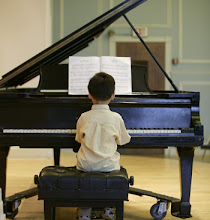 |
| Dolly Krasnopolsky, longtime piano faculty at Settlement |
Piano instruction has been at the center of Settlement since its founding, and for over two decades, Dolly Krasnopolsky has had a profound impact on many young pianists. Now serving as the Ann Stookey and Joseph W. Waz, Jr. Distinguished Faculty Chair, Dolly has taught at four Settlement branches over the course of 24 years since emigrating from the Soviet Union. She now teaches at three branches—Mary Louise Curtis, Kardon-Northeast, and Willow Grove —and spends long days, packed with students, at each. Through recommendations and requests over the years, students of all ages have sought her out; her youngest is 6, the oldest well past retirement age.
Whatever their ages, her students receive a thorough grounding in what Dolly calls the “musical apparatus”: the alignment and coordination of wrists, hands and fingers that control the fundamentals of playing piano. It’s a process from A-to-Z influenced by her education in conservatories in Moldova, though instruction there “was a little more military,” she admits. Her pupils clearly benefit from this approach; they frequently play in performances at Settlement, competitions, and major events throughout the wider community.
Q: Over the years, what have you noticed that your students all have in common?
Dolly Krasnopolsky: At the beginning, everyone starts with music because it is fun, but they don’t realize that it is hard work. In every case, interest, aptitude and musicality all lead toward progress and development. Regardless of talent, I always have students who enjoy doing music as something for their soul. There’s
always variety among students, but as long as they have discipline and can find focus in music, there is always progress.
Q: How can parents best support their children in playing music, regardless of their ability?
DK: Early exposure to music—playing recordings, taking them to concerts—can help steer a child toward music, but it is not important that parents have musical knowledge themselves. What matters is to set aside the time for music and to stick to a schedule. Parents always ask me, “What age is good to start music?” They should know it is possible to jump into music too soon.
Q: What does it mean to you to see your students succeed in their musical careers?
DK: I love to see my students learn to play well enough to represent themselves and to develop skills in stage presentation. They can go from performance hours here to recitals to performances outside the school. This progression is very important, because it reflects well on them as well as on Settlement and our focused structure of teaching. Once you have the technical skills and the presentation skills, you can play anything, and I feel there’s a little more satisfaction in playing a very difficult classical program.
Q: What can you accomplish teaching at a place like Settlement that you couldn’t by visiting students’ homes?
DK: With the environment of the school, everything is possible; that’s what makes it a school of music. Students have so many opportunities to perform at different levels and on different stages. If they show an interest in composing, I can send them across the hall to study with one of my colleagues. They can study theory or composition. They can try out a choir or an orchestra. They can play in small groups and chamber ensembles. Out of those roots, they can branch out.
A version of this interview appeared in the spring 2013 issue of our NOTES newsletter.




No comments:
Post a Comment